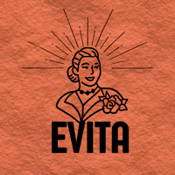
Overview
Synopsis
Evita is based on the historical story of María Eva Duarte de Perón, a poor Argentinian girl who grows up to be the wife of the president of Argentina, worshipped by her people. As a young woman who longs for an acting career, fame, and fortune, Eva quickly learns that her feminine wiles hold power among a culture, and a political system, run by men. Once she makes it to Buenos Aires, Evita finds fame and power in her powers of seduction, eventually seducing the rising political figure, Juan Perón, who becomes the President of Argentina. As First Lady of Argentina, she aligns herself with the poor, winning herself, and Perón, popularity among Argentinians. Evita becomes a hero to the poor and the working class—and an enemy to the rich. A young and unknown revolutionary, Ché, narrates the rise and fall of the beloved matriarch of the Argentinian people. This blockbuster musical, made even more famous as a 1996 Hollywood film starring Madonna and Antonio Banderas, shows both the righteous determination, and the ruthless power, of Argentina’s 20th century matriarch.
Show Information
Context
Evita blends Latin rhythms, pop, jazz, and classical musical theatre idioms to create a moving, emotional, and resonant work that has become a staple of the modern stage. Following the meteoric rise and ruthless ambition of Eva Perón—seen through the ironic, questioning narration of Ché Guevara—the musical is both a political chronicle and a star vehicle. Its soaring female lead, demanding male counterpart, and highly involved, musically meaningful chorus have ensured its reputation as one of
to read the context for Evita and to unlock other amazing theatre resources!Plot
Act One
Evita opens in a movie theatre in Buenos Aires, Argentina, July 26, 1952. Patrons are watching a Spanish film when it is interrupted by an announcement, saying Eva Perón, has died ("A Cinema in Buenos Aires, 26 July 1952"). The film audience enters into mourning, singing, in Latin, "Requiem for Evita.” A young revolutionary, Ché, the show’s narrator, watches the mourners and comments on their grief, and the state of Argentina’s culture and politics, and Eva’s influence at the
to read the plot for Evita and to unlock other amazing theatre resources!Characters
| Name | Part Size | Gender | Vocal Part |
|---|---|---|---|
|
Lead |
Male |
Tenor |
|
|
Lead |
Male |
Baritone |
|
|
Lead |
Female |
Mezzo-Soprano |
|
|
Supporting |
Male |
Tenor |
|
|
Supporting |
Female |
Mezzo-Soprano |
|
|
Ensemble |
Not Specified |
|
Songs
Act One
Act Two
A song with an asterisk (*) before the title indicates a dance number.
Monologues
Scenes
Key Terms
A ballad is a song style that tells a story through simple, lyrical verses and a steady rhythm. In theatre, ballads are often slow and emotional, allowing characters to reveal deep feelings or reflect on personal journeys. They can be used to highlight romance, longing, or moments of dramatic intensity.
A powerful, resonant singing technique used in musical theatre to project high notes with chest voice.
A genre of drama based on real people’s lives, exploring their challenges, accomplishments, and inner conflicts.
An album where all songs are unified by a theme or story, sometimes adapted into concept musicals.
The imaginary wall separating the audience from the actors onstage, often 'broken' for direct address. This term plays a vital role in understanding theatrical structure and is commonly encountered in stagecraft or performance settings.
A very admiring book about someone or a description of someone that represents the person as perfect or much better than they really are. For example, biographies of saints or visionary figures.
The language of ancient Rome, used in early liturgical drama and by scholars during the Renaissance and Medieval theatre periods.
Spoken commentary that provides exposition or transitions within a play. Narration often bridges scenes and guides audience understanding.
A character or voice that tells part of the story, offering commentary or background. Narrators are frequently used in children’s theatre and epic productions.
The patterned flow of sound or movement in speech, music, or choreography that shapes the energy and pacing of a performance.
A musical work with rock music that tells a dramatic story, often sung-through and adapted for stage or screen.
A production created to showcase the talents of a specific star performer, often tailored to their strengths.
A ballroom dance originating in Buenos Aires. It is characterized by marked rhythms and postures and abrupt pauses.
Videos
Quizzes
Themes, Symbols & Motifs
THEMES
Power and Ambition
At its heart,
to read about the themes, symbols and motifs from Evita and to unlock other amazing theatre resources!Quote Analysis
Sorry! We do not currently have learning modules for this guide.
